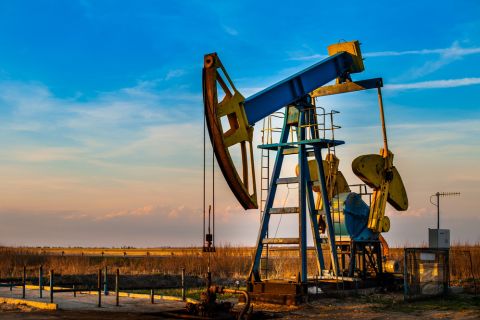U.S. energy firms this week increased the number of oil rigs operating for the second time in three weeks after oil prices soared over 18% in January.
Companies added seven oil rigs in the week to Feb. 8, bringing the total count to 854, Baker Hughes, a GE company (NYSE: BHGE), said in its weekly report.
The U.S. rig count, an early indicator of future output, is still higher than a year ago when 791 rigs were active after energy companies boosted spending in 2018 to capture higher prices that year.
In 2019, however, some drillers have said they plan to remove rigs due in part to forecasts for lower crude prices than last year.
Liberty Oilfield Services Inc. this week estimated roughly 20% of the hydraulic fracturing fleets that were active in mid-2018 have now been idled or are being idled.
U.S. crude futures were trading slightly under $53 per barrel on Feb. 8, down about 5% for the week on worries of a global economic slowdown.
Looking ahead, crude futures were trading around $54 per barrel for the balance of 2019 and $55 for calendar 2020. The U.S. Energy Information Administration (EIA) projected West Texas Intermediate spot crude would average $54.19 in 2019 and $60.76 in 2020, down from an average of $65.06 in 2018.
U.S. financial services firm Cowen & Co. said this week that early indications from the E&P companies it tracks point to a 1% increase in capex for drilling and completions in 2019.
Cowen noted larger spenders, like BP Plc and Chevron Corp, appear to be more resilient and have spending up year-over-year, while smaller, gas-exposed operators are generally down.
In total, Cowen said those E&P companies spent about $88.7 billion in 2018.
There were 1,049 oil and natural gas rigs active in the United States this week, according to Baker Hughes. Most rigs produce both oil and gas.
Analysts at Simmons & Co., energy specialists at U.S. investment bank Piper Jaffray, this week forecast the average combined oil and gas rig count will fall from 1,032 in 2018 to 999 in 2019 before rising to 1,087 in 2020. That was the same as its forecast last week.
Recommended Reading
Texas LNG Export Plant Signs Additional Offtake Deal With EQT
2024-04-23 - Glenfarne Group LLC's proposed Texas LNG export plant in Brownsville has signed an additional tolling agreement with EQT Corp. to provide natural gas liquefaction services of an additional 1.5 mtpa over 20 years.
US Refiners to Face Tighter Heavy Spreads this Summer TPH
2024-04-22 - Tudor, Pickering, Holt and Co. (TPH) expects fairly tight heavy crude discounts in the U.S. this summer and beyond owing to lower imports of Canadian, Mexican and Venezuelan crudes.
What's Affecting Oil Prices This Week? (April 22, 2024)
2024-04-22 - Stratas Advisors predict that despite geopolitical tensions, the oil supply will not be disrupted, even with the U.S. House of Representatives inserting sanctions on Iran’s oil exports.
Association: Monthly Texas Upstream Jobs Show Most Growth in Decade
2024-04-22 - Since the COVID-19 pandemic, the oil and gas industry has added 39,500 upstream jobs in Texas, with take home pay averaging $124,000 in 2023.
What's Affecting Oil Prices This Week? (Feb. 5, 2024)
2024-02-05 - Stratas Advisors says the U.S.’ response (so far) to the recent attack on U.S. troops has been measured without direct confrontation of Iran, which reduces the possibility of oil flows being disrupted.




